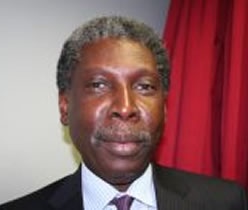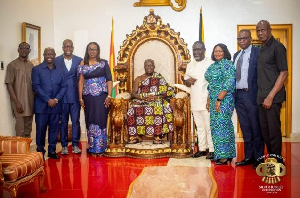- Home - News
- TWI News | TV
- Polls
- Year In Review
- News Archive
- Crime & Punishment
- Politics
- Regional
- Editorial
- Health
- Ghanaians Abroad
- Tabloid
- Africa
- Religion
- Election 2020
- Coronavirus
- News Videos | TV
- Photo Archives
- News Headlines
- Press Release
General News of Thursday, 5 June 2014
Source: GNA
WB urges gov't to bridge inequality gap

Social inequalities have widened the rate of poverty in the country, despite reduced levels, according to a recent World Bank survey.
The discussion was based on “Growth, Poverty Reduction and Inequality in Ghana”. Speaking on the theme, Mr Yusupha B. Crookes, Country Director of World Bank, said benefits meant to be enjoyed by the poor and vulnerable from social intervention initiatives were rather being enjoyed by people with higher incomes.
He said: “Inequality has been a problem in the country, and therefore government has to come out with policies to reduce such inequality.”
Mr Crookes, however, commended Ghana for having enjoyed a good growth record over the past two and a half decades, adding, “Ghana stands out as one of the few African countries when you talk about growth’’.
Tuesday’s meeting, held in Accra, was attended by stakeholders from the Ministry, Departments and Agencies, Civil Society and development partners.
Mr Santiago Herrera, Lead Economist with the World Bank, who presented the findings of the survey titled “Long Run Growth in Ghana’’, revealed dependency ratio all over the world was going up except in Africa.
He said there was a positive medium term prospects for GDP growth in Ghana, but it could as well be a significant short-term risks. He admitted progress in enhancing institutional quality has been slow in the country.
Mr Herrera noted that giving people equal opportunities was a necessary condition and there has to be better governance and legislation for the country to experience productivity growth.
Mr Francis Ferreira, World Bank Chief Economist, African Region, said the quality of education was associated with growth and that work attitudes of teachers and other stakeholders in the education sector was important in ensuring quality education for a better human resource.










